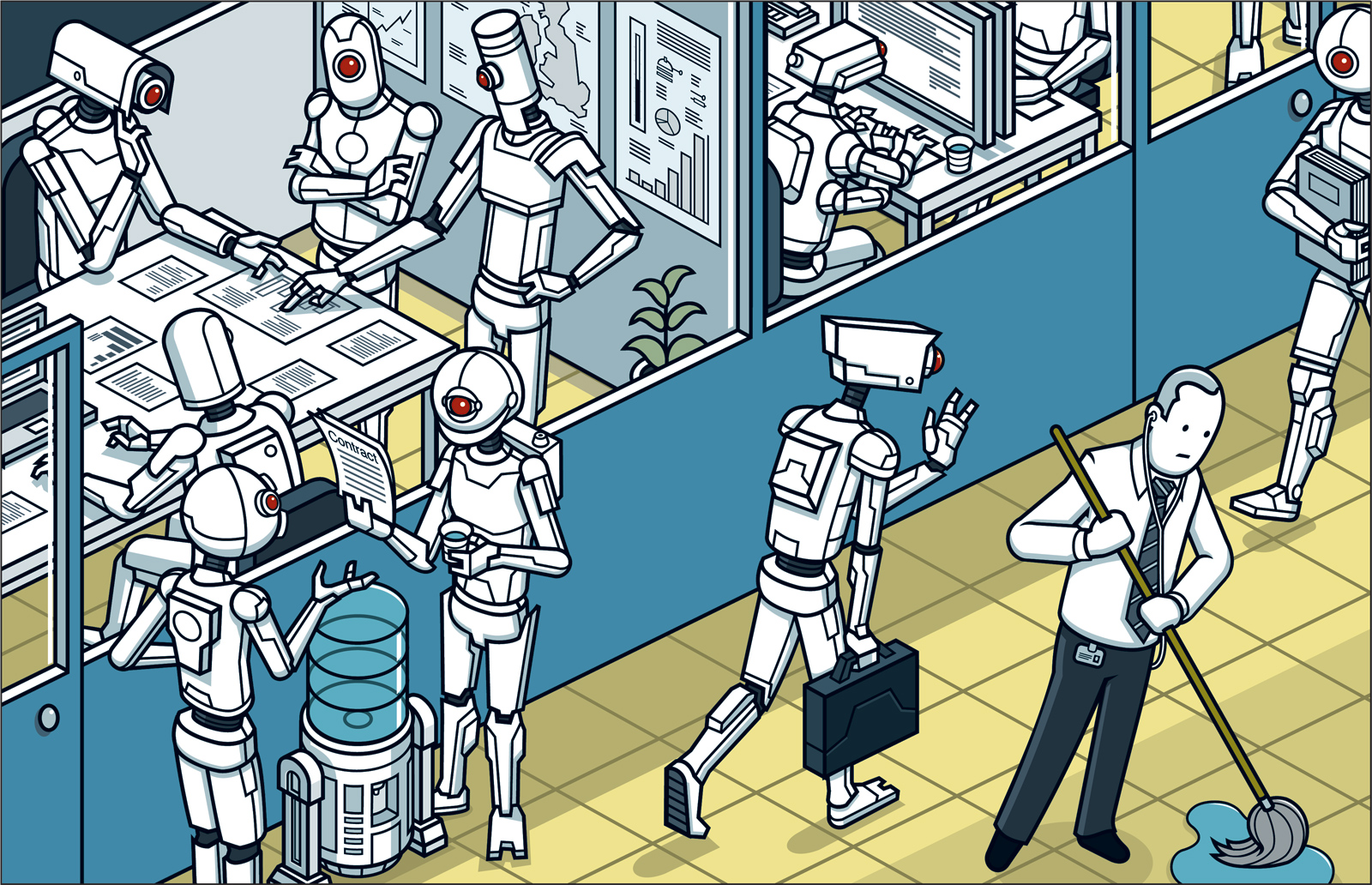
Sergei Mikheyev: firstly: this euphoria about the development of computer technology, the excitement about artificial intelligence (AI), sooner or later inevitably had to hit its adherents. Why? It’s very simple: because first of all, this technology is about optimising programming-related processes. Increasing the complexity of all these algorithms results in their increased capabilities, and these capabilities will replace the creators of the algorithms themselves. Because very soon the qualifications of programmers – people who write codes – will no longer live up to the level of the capabilities of the programmes that they themselves once created. That is, these programmes can easily replace them in what they do.
Secondly: it is obvious that these capabilities of AI will very quickly crowd out all low-quality work of popular culture – design, dubious and mediocre pseudo-art, music (disco rhythms, background melodies), etc. All those engaged in so-called “creative work” will quickly lose their jobs, because computer programmes that are becoming more complex will do it all for them without much difficulty. They already write primitive texts that do not require much talent and will write more and more.
Paradoxically (and ironically), those who have shown the most enthusiasm for “progress” (how many times I heard, “Don’t try to stop progress!”) will be the first to suffer! Because everything they produced in the “creative field” is actually an average, third-rate product. And, of course, first of all, computer programmes will replace them, including IT specialists, many of whom seem to be rather narrow-minded. In order to realise the real prospects, you need to be an intelligent person, and just writing codes and programmes is not enough for this. The development of this industry required a strategic approach, awareness of reality, and not just euphoria. Yes, we feel sorry for them, but, indeed, the first to be “eaten up” by AI will be its main proponents.
It will first “eat up” those who are enraptured by it the most and have promoted it the most. But it will be much harder to replace people who do physical work for one simple reason: this requires large, powerful, reliable and serious machines. And in order to produce a machine, AI alone is not enough. It can help with design, in management, but production is a material sphere. That is, where the production of material objects is needed (rather than what is on the screen), workers and brains are indispensable, and they will be in demand for a very long time, and maybe forever!
Besides, when it comes to the humanitarian sphere, it will be difficult to replace what is of real value: true masterpieces, great literary works, and genuine living thought. It will be hard for AI to replace this, because it cannot be calculated on a calculator and it is hardly possible to translate into precise, clear and primitive algorithms. Or it’ll have to deceive people by passing off mediocrity as works of genius.
What will euphoria about AI, about the development of all kinds of video programmes and computer technology lead to? First of all, as we can see, it results in all life turning into a complete lie when it becomes so indistinguishable from the truth that illusion becomes reality. For believers this is an absolutely obvious sign of the coming of the kingdom of the antichrist and the work of demonic forces. Because the purpose of the devil, the father of lies, is to deceive man, to convince him that there is no God, there is no soul, there is no afterlife, or that there is a soul and an afterlife, but they are different. That is, his goal is to deceive. How? With the help of various fake miracles – for example, of a technical nature.
We are moving headlong (to our own loud, enthusiastic exclamations, urging ourselves on) into a world where everything will be falsified, where we will be able to cast aspersions on our neighbor or on anyone else, portraying them as stupid, false, etc. And to create an atmosphere of complete madness, when people will not understand how they are being deceived, and it will be possible to set everyone against each other. Imagine that your spouse has been slandered in such a way, and you are even unable to find out if it is true, and they will drive you crazy! Or you will be set up to fight with your friend, relative or neighbour, giving slander a form of authenticity, and it won’t be funny at all!
There is no AI: there are just mathematical algorithms and computer programmes that are becoming more sophisticated. Can they be used in the processes of management, forecasting, design and planning? Yes, they can. But people must control the degree of the process of implementation and correlation with reality and with real human destinies. That is, it can be used somewhere and somehow, but there should be no absolute trust! And it is very important to define the limits of using these algorithms.
A position that I rather share: These programmes can and should be used in the processes of technical design, planning, mechanical operations, and large-scale data analysis. But we should avoid (or do it extremely cautiously) introducing AI into the process of social life, creative work, and human relations – here an unambiguous barrier must be put up. Where it tries to replace the human spirit, creativity and existence, there must be a block.